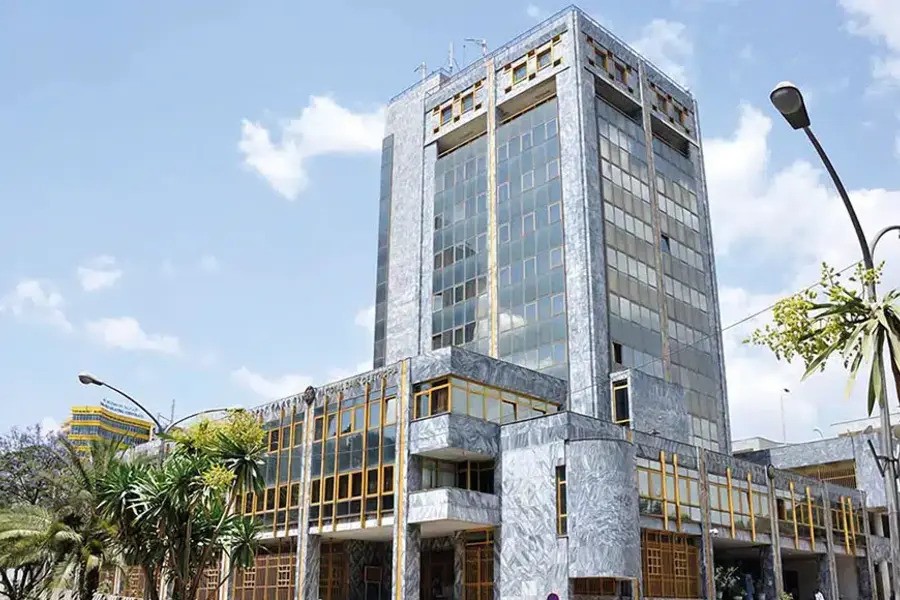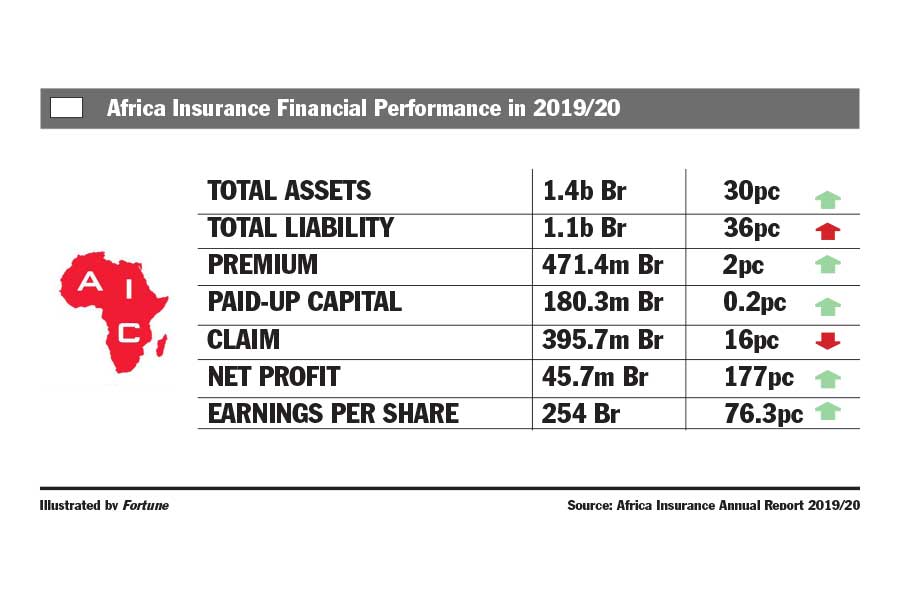
Fortune News | Feb 18,2024
Jul 27 , 2019
By Marie Laberge
Data on governance, like any other official statistics, are a public good and should be accessible to all. Otherwise, the true scale of violence, exclusion and discrimination will remain hidden, and the potential of carefully collected information to improve life for ordinary citizens will not be fully realised.
Government ministers are attending the United Nations high-level political forum this week to review progress toward several of UN’s 17 Sustainable Development Goals. These include the governance-focused SDG 16, which aims to promote peaceful and inclusive societies, access to justice for all, and accountable institutions at every level. This goal includes 12 targets to be achieved by 2030, with progress toward them to be measured against 23 indicators.
Of the 51 countries that have volunteered to report on their performance at this forum, more than one-third (18) are from Africa – the largest-ever contingent from the region. According to a new study by the South African Institute of International Affairs (SAIIA) and the United Nations Development Programme (UNDP), African countries are among the most innovative and committed to measuring and reporting on governance goal. Their efforts could serve as a model for others to follow.
This finding may seem counterintuitive, given Africa’s reputation as a region beset by significant governance challenges, often exacerbated by crises. Yet it will come as no surprise to those who recall the early stages of drafting the SDGs back in 2014. African governments played a pivotal role in advocating the adoption of a standalone SDG 16 with dedicated targets and indicators, in contrast to powerful UN member states that wanted to relegate issues of governance and peace to the preamble of the new global development agenda.
The SAIIA/UNDP study, which surveyed government officials and non-government actors in 38 African countries, highlights three main ways in which the continent is becoming a world leader in measuring progress on governance.
First, Africa is demonstrating that the 12 targets comprising SDG 16 are measurable and that national statistical offices (NSOs) can produce good data on access to justice, representation in public institutions, and political participation, for example. Since 2012, in fact, African statisticians have been testing a pilot approach to institutionalising the production of official national survey data on governance, peace and security. Today, nearly one-half of African NSOs use a survey module that enables countries to report – in one go and at minimal cost – on 11 of the 23 indicators under SDG 16.
The success of this initiative reflects African policymakers’ strong preference for national statistics based on citizens’ experiences rather than international governance indicators that reflect “expert” views. Reinforcing countries’ “data sovereignty” in the new domains of governance and peace statistics will require governments to spend more on generating such data and NSOs to establish dedicated teams with relevant expertise. Yet only 16pc of government respondents to the SAIIA/UNDP survey said that their country had allocated funding specifically for the production of SDG 16 statistics.
Second, African governments are increasingly trying to “localize” SDG 16, as the UN 2030 Agenda for Sustainable Development calls on countries everywhere to do. Some 60pc of survey respondents indicated that their country had tailored the goal’s global targets and indicators to the national context in consultation with civil-society leaders, researchers and government actors. Cameroon’s government, for example, has invited civil society groups to “translate” SDG 16’s global indicators into simplified local statistics in close cooperation with the NSO. The grassroots assessment of progress against these indicators is intended to complement the government-led reporting mechanism.
Finally, some African “SDG 16 champions” are making the goal central to national planning, budgeting and reporting. In Kenya, all public-sector officials in SDG 16-related ministries, departments and agencies are obliged to sign performance contracts with the central government, in which they identify SDG 16 targets and indicators relevant to their mandate and explain how these are being integrated in policy and development plans. Ghana and Benin, meanwhile, emphasise budget spending that has a high SDG 16 impact, and Ghana’s government also publicly discloses how closely its financial priorities are aligned with its stated commitments under this goal.
Moreover, several countries have found innovative ways to ensure that governments use new national SDG 16 data in their day-to-day decision-making. The Liberia Peacebuilding Office trains potential users of governance statistics to analyse and apply such information in their work, while Uganda employs statisticians in its justice and law enforcement agencies to help create a “data culture” among planners and policymakers.
Yet African countries still need to improve public access to SDG 16 data and indicators, so that citizens can better hold their governments to account. Only one-quarter of survey respondents said that these statistics were easily accessible to the public, and less than one-third (32pc) of non-government respondents felt that their government is committed to making SDG 16 data readily available.
Data on governance, like any other official statistics, are a public good and should be accessible to all. Otherwise, the true scale of violence, exclusion and discrimination will remain hidden, and the potential of carefully collected information to improve life for ordinary citizens – in Africa and elsewhere – will not be fully realised.
PUBLISHED ON
Jul 27,2019 [ VOL
20 , NO
1004]


Fortune News | Feb 18,2024

Advertorials | Sep 13,2021

Fortune News | Aug 11,2024

My Opinion | Oct 14,2023

My Opinion | Mar 16,2024

Fortune News | Dec 12,2020

Radar | Dec 07,2019

Editorial | Dec 31,2022

Commentaries | Nov 06,2021

Commentaries | May 08,2021

My Opinion | 131584 Views | Aug 14,2021

My Opinion | 127940 Views | Aug 21,2021

My Opinion | 125915 Views | Sep 10,2021

My Opinion | 123539 Views | Aug 07,2021

Dec 22 , 2024 . By TIZITA SHEWAFERAW
Charged with transforming colossal state-owned enterprises into modern and competitiv...

Aug 18 , 2024 . By AKSAH ITALO
Although predictable Yonas Zerihun's job in the ride-hailing service is not immune to...

Jul 28 , 2024 . By TIZITA SHEWAFERAW
Unhabitual, perhaps too many, Samuel Gebreyohannes, 38, used to occasionally enjoy a couple of beers at breakfast. However, he recently swit...

Jul 13 , 2024 . By AKSAH ITALO
Investors who rely on tractors, trucks, and field vehicles for commuting, transporting commodities, and f...

Jun 28 , 2025
Meseret Damtie, the assertive auditor general, has never been shy about naming names...

Jun 21 , 2025
A well-worn adage says, “Budget is not destiny, but it is direction.” Examining t...

Jun 14 , 2025
Yet again, the Horn of Africa is bracing for trouble. A region already frayed by wars...

Jun 7 , 2025
Few promises shine brighter in Addis Abeba than the pledge of a roof for every family...

Jun 29 , 2025
Addis Abeba's first rains have coincided with a sweeping rise in private school tuition, prompting the city's education...

Jun 29 , 2025 . By BEZAWIT HULUAGER
Central Bank Governor Mamo Mihretu claimed a bold reconfiguration of monetary policy...

Jun 29 , 2025 . By BEZAWIT HULUAGER
The federal government is betting on a sweeping overhaul of the driver licensing regi...

Jun 29 , 2025 . By NAHOM AYELE
Gadaa Bank has listed 1.2 million shares on the Ethiopian Securities Exchange (ESX),...